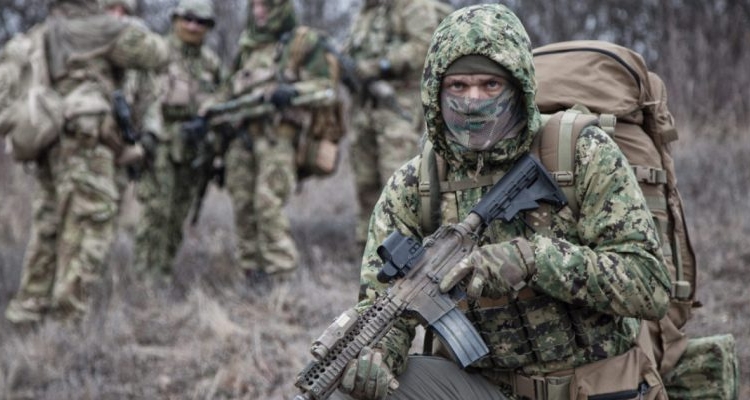After announcing a few weeks ago that it will continue its African operations, several hundred “experienced” Wagner forces have arrived in the Central African Republic.
Officer’s Union for International Security – one of Wagner group’s front companies – stated on Telegram that Russian instructors will continue to assist Central African Armed Forces (FACA) military personnel and law enforcement officers of the CAR in ensuring security ahead of the constitutional referendum scheduled for July 30.
“Another plane has arrived in Bangui with instructors to work in the Central African Republic,” said the Officers’ Union for International Security (OUIS) on Telegram.
“The planned rotation continues. Several hundred experienced professionals from the Wagner company are joining the team working in CAR,” said the statement.
“Russian instructors will continue to aid soldiers in the Central African armed forces to ensure security in anticipation of the constitutional referendum scheduled for July 30.”
According to the United States, OUIS is a front company for the Wagner group in CAR. It is run by Russian Alexandre Ivanov, who was placed under American sanctions in January.
In its statement, OUIS said its instructors have been training CAR security forces for more than five years, allowing for an improvement in the general security of the country.
Russia’s Wagner Group are deeply entrenched in the security framework of a number of African countries, and one of the key concerns is the potential destabilization caused by the departure of Wagner Group soldiers from ongoing missions. Last month, the Wagner mercenary group will continue operations in Mali and the Central African Republic despite its leader’s aborted insurrection in June.
Wagner instructors have been training the national army, police and gendarmerie of the CAR for more than five years. “Thanks to the training that they received from specialists… The CAR has managed to achieve a widespread increase in the level of security, which has become a solid foundation for the development of the Republic.”
Prior to the short-lived mutiny by Wagner chief Yevgeny Prigozhin, Wagner had been expanding its presence in Africa, including the Central African Republic (CAR). The CAR has witnessed an increased involvement of Wagner Group personnel, who are deployed to support the government in its fight against rebel factions and to protect key infrastructure. Wagner Group’s activities in the CAR have raised concerns due to reports of human rights abuses and violations, including the indiscriminate targeting of civilians. Additionally, there are suspicions that the group’s interests in the CAR extend beyond military support, encompassing control over natural resources such as diamonds and gold. The presence of the Wagner Group in Africa, particularly in the CAR, highlights the complex dynamics of foreign military involvement and its potential implications for regional stability and security.
In the Central African Republic, the Wagner Group operates a military base in the Bossangoa region and trains, assists, and guards CAR’s gold and diamond mines. They have played a crucial role in defending the government and President Faustin-Archange Touadera against armed rebel groups and maintaining stability in the region. When a coalition of rebels advanced on the capital Bangui in 2020, threatening to overthrow the government, President Touadera sought Moscow’s assistance. As a result, additional Wagner Group troops were deployed, leading to the withdrawal of French troops and ultimately impacting the security dynamics in the country.
The fate of the Wagner group remains up in the air, as Russian President Vladimir Putin offered those who participated in the mutiny an option between joining the army or going back home to their families or going to Belarus following their exiled chief.
Furthermore, Russia’s Foreign Minister Sergei Lavrov said countries in Africa which dealt with Wagner were not panicked after the insurrection as the mutiny would not alter Russia’s relationship with countries in Africa.
As for African countries that hired Wagner, Lavrov said those countries also had direct security cooperation with Moscow. Lavrov said that Wagner group members will continue operations in Mali and Central African Republic (CAR). He pointed out that several hundred Russian servicemen who are members of Wagner were working in CAR as instructors and said: “This work will, of course, continue.”



